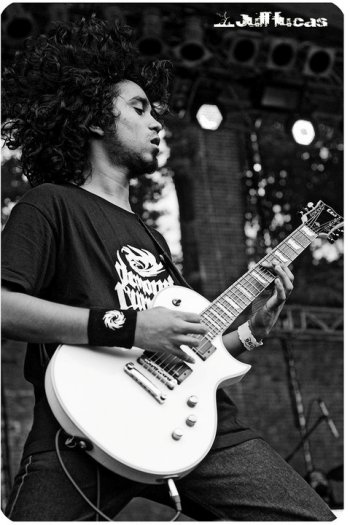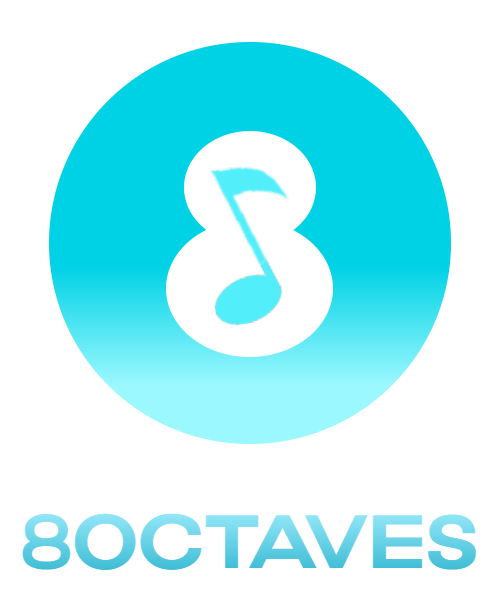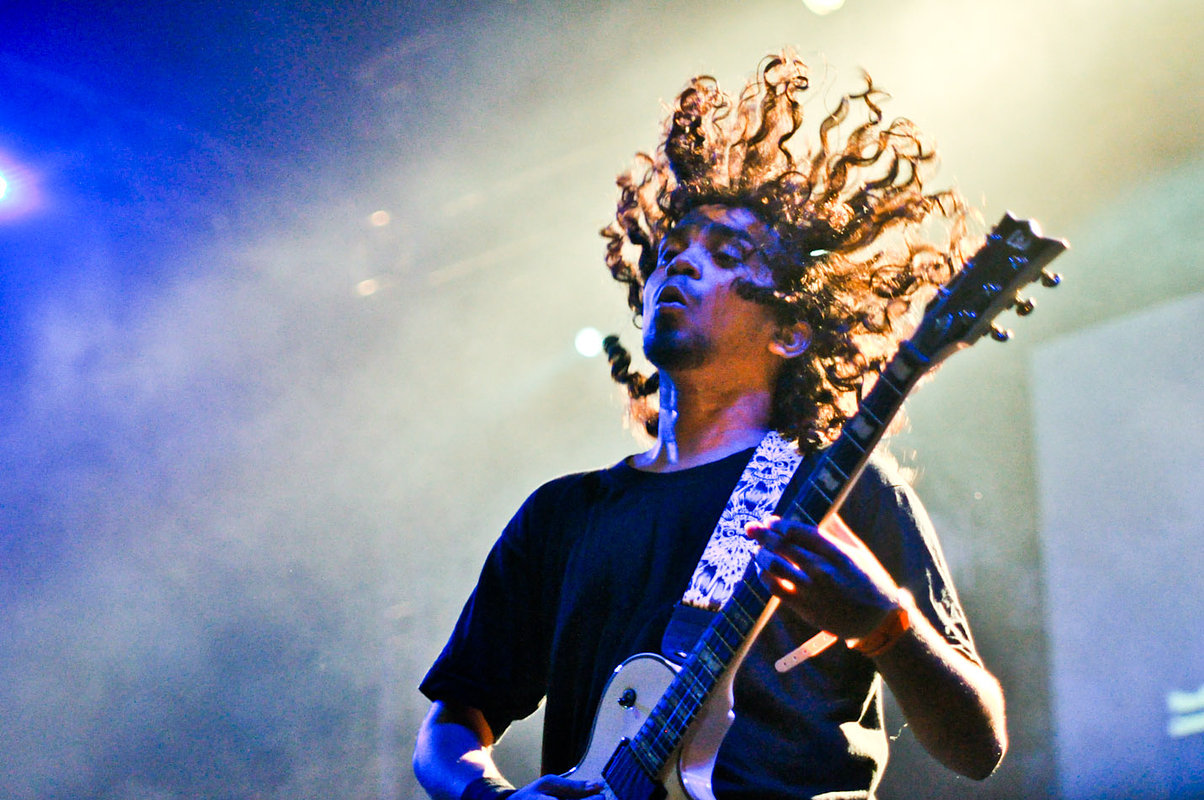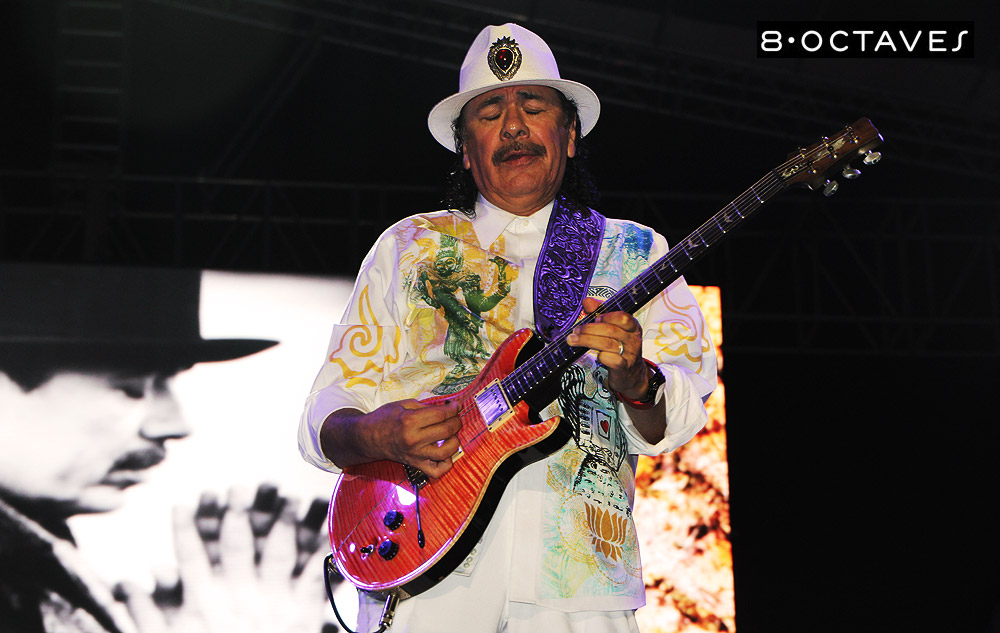Today we have with us a guitar virtuoso, a local legend, and now a nurturer of new talent. All this and more, and he is just 21 years old. Daniel Rego is a guitarist who is currently involved with various projects, and is best known for being a member of Demonic Resurrection. We recently caught up with Daniel for an interview, and here is how it went:
Eight Octaves: What made you pick up the guitar?
Daniel Rego: I am not really sure. I picked up the guitar early. My dad got me a acoustic guitar and sent me to Francis sir. I think you might know him. I went to him for six months and then I started to pursue it by myself. The thing that really made me take up the guitar seriously was when I started listening to Iron Maiden’s Brave New World album. I was ten at that time. As well as the other music I grew up on. Also, my dad’s music – a lot of 70’s rock, Pink Floyd sort of stuff, a lot of 80’s, also Def Lepard that helps. But primarily Brave New World.
EO: Why the guitar? Why not any other instrument?
Daniel: I have not really thought about it. I also play the bass guitar but I don’t pursue it professionally. I play it only at home most of time, and as I started out with the guitar I found it quite natural expressing myself on the guitar. So it made sense to continue with it. I also play a bit of drums.
EO: What is your current arsenal?
Daniel: I recently got endorsed by PRS Guitars. It’s a US-based company. So I have PRS Paul Allender SE signature guitar which I got two months ago. I also have my dad’s old Fender 40th anniversary Strat. But that stays at home most of the time. I use it to record stuff a lot. I also have an Ovation copy acoustic guitar. Actually, it is a semi-electric cause it has a piezo pickup inside which is made by Handax, a Korean company. So that’s my acoustic guitar which I use for live or at home. I also own a Yamaha RBX 170 bass guitar. But it is not used much. I mainly use it at home. I use a Line 6 Pod X3 Live. That’s pretty much all of it. I connect the Line 6 via USB to my computer so it is my recording interface at home. For live, I use it straight to the board or to the PA so I don’t need an amp either.
EO: How much do you feel equipment matters?
Daniel: Well, it’s a cliché to say it is not important. It is important. If you have a guitar that doesn’t sound good or doesn’t inspire you to play then the chances are you are going to be stunted a bit. But it is not naturally required. I had a shitty guitar for a long time. I think it is important that a musician keeps in touch with what is happening around, and gets what stands in the way the least, and allows him to express himself the best. But i don’t think it is a hindrance if you don’t have good gear, you can always transcend that and go beyond that. Good equipment can also inspire you. Definitely.
EO: Are there any techniques or methods you stand by over the years?
Daniel: I think a huge part of my learning and teaching music has been giving a lot of importance to the theoretical part of it. From right when I started learning my guitar I paid attention to music theory and that has helped me over the years as a guitarist.
Also, there is something you can’t grasp in music beyond an aesthetic level if you don’t understand the nuts and bolts of it. At some point every musician should learn music theory, there is no substitute for it. A lot of people feel that theory dulls your creative edge and makes you do things in obvious ways. That’s nonsense. The theoretical and aesthetical part of music affect each other. So, if you know a lot about the theoretical aspect you can apply it to the aesthetic side. But at the same time you should not be impaired at the aesthetic level as a lot of people do who take music theory too seriously and can’t handle anything of the nut.
I also take ear training seriously. It is something I work on a lot and it is something that definitely affects my appreciation of music. If your ear can analyze things on the fly as you are listening and it becomes part of your subconscious process. It deepens your understanding of music and enjoyment of it ultimately much more.
So, I’d say ear training and music theory have definitely been a great asset and a technique I have been standing by for, for a long time.

EO: How have you been going about composing?
Daniel: It depends on the setup and purpose of the composition. For Demonic Resurrection, we all write our songs individually and not as a group setup. We have all have our individual creative and aesthetic senses. So, all of us make our individual tracks at home and then the rest of the band hears it, and then we all have input in it later. So the skeleton of the song is always by one person. With DR, more than starting with a musical idea, I start out with an aesthetic idea. I envision a song that puts into music a kind of a scenario. Maybe trying to imagine a song that would play in a battle scene or for a war on a great plain. Since DR music is very war oriented, music-wise, I usually work with an image. So maybe I think of an image that epitomizes a certain visual scene. I try to express that image through a guitar part and it builds from there on. So that is how DR music works compositionally at least for me. So, with DR, it starts with less concrete or theoretical ideas and more of visual and imaginative ideas, and with jazz, jazz rock, fusion or blues, so it’s a lot jamming with myself. I play a certain chord progression with a certain melody over it. That becomes the heart of the song and then everything else builds around it and it evolves into a full song.



